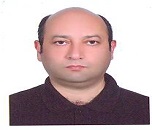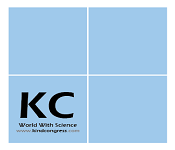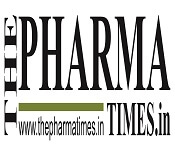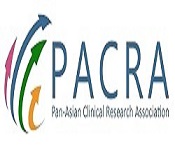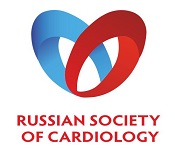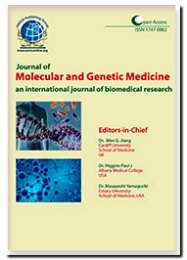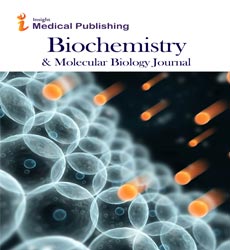Theme: Exploring the Modern Innovation in the field of Molecular Biology and Medicine
Molecular Biology Meet 2018
ME Conferences welcomes all the speakers, sponsors and other research members from all over the world to the “International Conference on Molecular Biology and Medicine” which is going to be held during August 27-28, 2018 Dubai, UAE.
Molecular Biology and Medicine 2018 provides better leading speakers, researchers, academic scientists and research scholars to exchange and share their experiences and ideas about Molecular Biology and Biochemistry. It can also provide a better platform for practitioners, researchers and educators to present and discuss the most recent innovations, trends, as well as practical challenges encountered and solutions adopted in the fields of Molecular Medicine, Nuclear Medicine, Gene Therapy, and Cell Signalling. This method is used to study the molecular and biology including structural and functional of biomedicine, molecular enzymology, and molecular immunogy, theoretical bases of biotechnology, physical chemistry of proteins and nucleic acids and analysis of DNA and RNA. The organizing committee is gear up for an informative conference program including plenary lectures, symposia, workshops on a variety of topics, poster presentations and various programs for participants from all over the world.
Target Audience
The gathering talks about the most recent research results and mechanical progressions in the field and unites driving, researchers, explore researchers, understudies alongside clinics and research experts to trade share their perspectives on basic parts of Molecular science and natural chemistry. The occasion is composed in an approach to give a selective stage to new scientists, researchers and teachers to exhibit and talk about the latest advancements, patterns, and down to earth challenges experienced and the arrangements received in the field of Molecular science. Molecular biology 2018 will involve driving session speakers, keynotes speakers, publication moderators will's identity displaying their exploration on the received in the fields of Molecular Medicine, Nuclear Medicine, Cellular and Molecular Medicine, Gene Therapy, Cell Signalling.
Heads, Deans, and Professors from Biology and Biochemistry departments
Scientists and Researchers organizers
Research Scholars
Healthcare professionals
Business Entrepreneurs
Industrialists
Founders and Employees of the related companies and hospitals
Medicinal Chemists
Directors of Biology and Biochemistry departments Programs or Associations Professors
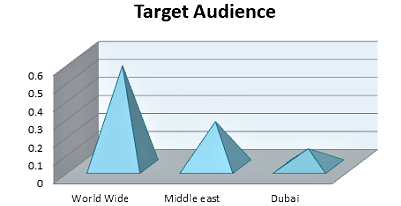
Track 1: Molecular Biology
Molecular biology is the branch of biological science that deals with a molecular basis of biological activity including the interactions between the different types of DNA, RNA and proteins and their biosynthesis, and studies how these interactions are regulated. The field overlaps with other areas of biology and chemistry, particularly genetics and biochemistry. It has many applications such as gene searching, molecular mechanisms of diseases and its therapeutic approaches by cloning, expression and regulation of gene. Research area includes gene expression, epigenetics and structure and function of chromatin, RNA processing, functions of non-coding RNAs, transcription. Recent and advanced researches are going on Molecular biology, structural mechanism of DNA replication, repair and recombination, Transcription, RNA processing, Post-translational modification, proteomics, Genetic Mutation, Epigenetics, Molecular mechanisms of diseases.
Track 2: Molecular Enzymology
Molecular enzymology is the department of biochemistry that encompasses the useful and basic characteristics of the enzymes at molecular level. Enzymes are globular proteins which play an exceptionally critical part as a catalyst for a biochemical response. Thus, Molecular enzymology encompasses of different application in the pharm and biotechnological strategy and understanding the molecular structure through bioinformatics method. It thinks about making a difference in understanding and creating the enzymes as biomarkers. It also deals with planning and synthesis of chemicals and various enzymes where the neglected restorative needs are based on inventive sedate targets. Furthermore, this field deals with the potential employments of the enzymes in the industry, for the environment and for human wellbeing are explored.
Track 3: Molecular Toxicology
Molecular toxicology is a department that deals with the factors resulting on the living organisms due to various chemical components. It holds the potential to be a key supporter to the investigative toxicology paradigm. Among those atomic advances with appropriateness for early organize preclinical security appraisal are cDNA library screening, gene expression and cloning and expression investigation advances. Toxicology covering with science, chemistry, pharmacology, and pharmaceutical, that includes the study of the antagonistic impacts of chemical substances on living beings and the practice of diagnosing bipolar disorder and treating exposures to poisons and toxicants.
Track 4: Molecular Pathology
Molecular pathology is a part of pathology which is aims in the analysis and finding of disease through the examination of particles inside organs, tissues or characteristic fluids. It imparts a few parts of training to anatomic pathology and clinical pathology, molecular science, bio chemistry, proteomics and genetics, and is at times considered a "hybrid" teaches. Usually infections or diseases are analysed by looking at signs and indications in patients and by utilizing demonstrative tests. But it’s conceivable that indications and tests can provide the same answers for diverse infections, or for subsets of the same infection that are caused by distinctive basic issues. Hence, Molecular pathology is distinctive in that it looks for to depict and get effect and presence of illness at the level of macromolecules (for case DNA, RNA and protein) and in a few cases at an indeed smaller scale. It is multi-disciplinary in nature and concentrates predominantly on the sub-microscopic parts of illness.
Track 5: Molecular Pharmacology
Pharmacology is the premise of much of the research and improvement of unused drugs. The future of pharmacology is guaranteed, as there are numerous illnesses for which neither cures nor have palliations been concocted - for example, Alzheimer’s illness, neurogenerative diseases, many forms of cancer. Indeed when a remedy or treatment is accessible, few medications are perfect and the look for superior drugs proceeds. In addition, researchers such as physiologists, biochemists and clinicians regularly discover the knowledge of pharmacology valuable as they use drugs to test and characterize the organic systems they are examining. The cellular and chemical abnormalities of illness states are considered in the expectation that molecules may be planned specifically to redress the variation from the norm. The consideration of pharmacology requires understanding normal body capacities (biochemistry and physiology) and the unsettling influences that happens (pathology).
Track 6: Molecular Microbiology
Molecular Microbiology inquires about centres on the bacterial cell cycle, translation direction, chromosome isolation and cell division. It Incorporates the Structure-function examination of the NusA-RNA polymerase interaction, Exploitation of the interaction of start factor with RNA sequencing and examination for unused anti-microbial advancement, Frameworks science of the model Gram positive life form Bacillus, Bacterial chromosome repair mechanisms. It points at understanding protein trade, solute transport and cell division in micro-organisms. These forms take place at the cytoplasmic film of micro-organisms, and membrane manufactured biology medication.
Track 7: Molecular Drug Designing
Drug designing, habitually implied to as a sensible pharmaceutical layout or basically a typical arrange, is the imaginative strategy of finding unused pharmaceuticals considering the data of a characteristic target. The medication is most generally a natural little atom that actuates or restrains the capacity of a structure of molecules. For example, a protein, which thus brings about a remedial advantage to the patient? In the most essential plant pathology medicate configuration includes the outline of particles that are corresponding fit as a fiddle and charge to the bio molecular focus with which they collaborate and in this way, will tie to it. Medication outline much of the time however not really depends on PC displaying systems.
Track 8: Molecular Cloning
Molecular cloning is a set of exploratory strategies in molecular science that are utilized to gather replication DNA particles and to coordinate their replication inside host life forms. In this procedure, DNA coding for a protein of intrigued is cloned into a plasmid. The utilization of the word cloning alludes to the truth that the strategy includes the replication of one particle to deliver a population of cells with indistinguishable DNA molecules. A vector has 3 particular highlights: a beginning of replication, a numerous cloning location and a specific marker. The beginning of replication will have promoter districts upstream from the replication/transcription begin location. This plasmid can be embedded into either bacterial or creature cells. Presenting DNA into bacterial cells can be done by transformation, conjugation or by transduction. A few diverse transfection strategies are accessible, such as calcium phosphate transfection, electroporation, microinjection and liposome transfection.
Track 9: Molecular Diagnosis
Molecular diagnostics is regarded as the determination of genomic variants in-order to ease the process of detection, diagnosis, sub-classification, prognosis, and monitoring the effects of therapy. Molecular diagnostics is a set of strategies utilized to dissect biomarkers in the genome and proteome and to identify the individual's hereditary code and to study how their cells express their genes as proteins by applying molecular biology to restorative testing. The method is utilized to analyze and screen infection, distinguish hazard, and choose which treatments will work best for individual patients. The methodology is utilized to dissect and screen affliction, recognize chance, and select which medications will work best for particular patients. By dissecting the specifics of the patient and their sickness, molecular diagnostics offers the plausibility of customized pharmaceutical.
Track 10: Pathology and Molecular Medicine
Pathology is a significant component of the medical sciences to understand the nature of the disease and a major field in diagnosis and applied biomedicine. It incorporates a wide range of medical practices and bioscience research to diagnose disease mostly by analysing cells, tissues and body fluids. The sense of the word pathology as a synonym of disease or pathos is very common in health care. Molecular medicine is an emerging area that aims to understand the molecular determinants of disease and health for the prevention, diagnosis and treatment using physical, chemical, biological and medical techniques. It points to get it how wellbeing is kept up and the origins and mechanisms of human infections. The molecular pharmaceutical point of view emphasizes cellular and molecular marvels and interventions rather than the past conceptual and observational centre on patients and their Artificial Organs.
Track 11: Microbiology and Molecular Genetics
Microbiology deals with the study of living micro-organisms, which includes unicellular (single cell), multicellular (cell colony) organisms such as bacteria, virus, fungi, etc. Microbiology includes various sub-disciplines counting virology, parasitology, mycology and bacteriology. Eukaryotic microorganisms have membrane-bound cell organelles and incorporate fungi, while prokaryotic life forms lack the membrane-bound cell organelles. The Microbiologists customarily depend on culture, staining, and microscopy. It is regularly based on molecular science devices such as DNA arrangement based identification, illustration 16s rRNA gene grouping utilized for microbes identification. Molecular genetics is the field of science that thinks about the structure and work of genes at molecular level and in this way utilizes strategies of both molecular science and genetics. This is valuable in the pondering of formative science and in understanding and treating genetic illnesses.
Track 12: Evolutionary Genetics
Evolutionary genetics is based on how genetic variation leads to developmental change. This field impacts a differing set of scholarly disciplines counting infectious disease, behaviour, physiology, genome advancement, adjustment, and speciation. It incorporates points such as the advancement of genome structure, the hereditary premise of speciation and adjustment, and hereditary change in reaction to determination within populations. This field endeavours to account for advancement in terms of changes in quality and genotype frequencies within population and the forms that change over the variation with population into more or less permanent variation between species.
Track 13: Genetic Engineering
Genetic engineering is the direct manipulation of an organism's genes using biotechnology. It is a set of technologies used to change the genetic makeup of cells, including the transfer of genes within and across species boundaries to produce improved or novel organisms. It has been applied in numerous fields including research, medicine, and industrial biotechnology. As well as producing hormones, vaccines and other drugs genetic engineering has the potential to cure genetic diseases through gene therapy. The rise of commercialised genetically modified crops has provided economic benefit to farmers in many different countries, but has also been the source of most of the controversy surrounding the technology. Viruses are the most common type of vectors used in gene therapy, which is genetically altered to carry the normal human DNA.
Track 14: Cell and Gene Therapy
Cell therapy incorporates a treatment in which cell fabric is imbued into a living cell. It refers to the cell alterations at the molecular level. If the chemotherapy in oncology for occurrence is considered, it implies to kill the cell by passing on harmful administrators to the cell, while Molecular medications would come to a conclusion over the cell division without basically butchering the cell. Gene therapy is a special strategy utilized in restorative treatment those employments particular sorts of genes to treat a few sorts of infections. Gene therapy is the one in which most endless researches are being carried out by analysts all over the world in order to avoid or treat few illnesses such as immune deficiencies, molecular biology of irresistible illnesses, cancer, and indeed HIV, through distinctive methodologies. Gene therapy is also utilized to treat a few innate infections, wherein the transformed imperfect gene is supplanted with the utilitarian gene.
Track 15: Cell Biology
Cell biology is a department of science that ponders the diverse structures and capacities of the cell and it mainly revolves around the concept that the cell is the fundamental unit of life. It clarifies the structure, organization of the organelles they contain, their physiological properties, metabolic forms, flagging pathways, life cycle, and intuitive with their surrounding environment. This is done both on a minuscule and molecular level as it includes both membrane-bound and membrane lacking prokaryotic cells and eukaryotic cells. Knowing the components and working of cells and its principal to all biological sciences; it is moreover basic and necessary to inquire about it in bio-medical fields such as cancer, and other infections. Investigations in cell science are closely related to genetics, biochemistry, molecular science, immunology, and formative biology.
Track 16: Structural Biology
Structural science is characterized as a department of molecular science which bargains with biophysics and organic chemistry with respect to the molecular structure of natural macromolecules and in particular it is the study of proteins and nucleic acids and their alterations. It moreover gives data approximately even for the basic changes involved and how it influences throughout the work. This process of assurance of structures of lipoproteins, nucleic acids may take a long time as the shape, estimate and gatherings of these molecules may be modifying the work. Scholars appear incredible intrigued as they bargain with the assurance of the work of macromolecules.
Track 17: Structural Bioinformatics and Proteomics
The limited sequence similarity of protein sequences with known structures has led to an indispensable need for computational technology to predict their structures. Structural bioinformatics (SB) has become integral in elucidating the sequence–structure–function relationship of a protein. Glycobiology along with the field of proteomics, especially the application of mass spectrometry examination to protein tests, is well-established and developing quickly. Proteomics is the newly emerging field of life science research that uses High Throughput (HT) technologies to display, identify and/or characterize all the proteins in a given cell, tissue or organism. Structural bioinformatics bargains with Basic information of particles. It abuses calculations for elucidation and deals with 3D spatial information. The principal advancements in strategies of structural bioinformatics are tertiary structure expectation and folding mechanism analysis, the binding mechanism and the intuitive between biological macromolecules and ligands.
Track 18: Biochemistry
Biochemistry deals with the structure and work of various biological molecules such as proteins, nucleic acids, carbohydrates and lipids and also the chemical and physic-physical process occurring with living organisms. It is moreover utilized to depict methods suitable for understanding the intuitive and capacities of biological molecules and it is a research facility based science that brings together science and chemistry. By utilizing chemical information and strategies, organic chemists can get it and unravel biological issues. Biochemistry centers on forms happening at a molecular level and it centres on what’s happening inside our cells. It too looks at how cells communicate with each other, for case amid cell development or battling sickness.
Track 19: Metabolomics
Metabolomics refers to the pondering of chemical forms including metabolites. Particularly it is the "efficient ponder of the one of a kind chemical fingerprints that particular cellular forms take off behind", the consideration of their small-molecule metabolite profiles. The metabolomics speaks to the collection of all metabolites in a natural cell, tissue, organ or living being, which are the conclusion items of cellular forms. mRNA quality expression information and proteomic examinations uncover the set of quality items being created in the cell, information that speaks to one perspective of cellular work. The challenge of frameworks science and useful genomics is to coordinated proteomic and metabolomics data to supply a superior understanding of molecular and cellular biology.
Track 20: Nuclear Medicine
Nuclear Medicine includes the field of Molecular imaging. It uses in very small amounts of radioactive materials (radio pharmaceuticals) to diagnose and treat disease. In nuclear medicine imaging, the radio pharmaceuticals are detected by special types of cameras that work with computers to provide very precise pictures of the area of the body being imaged. Nuclear medicine can also be used to treat certain types of cancer and other diseases. Nuclear Medicine and Molecular Imaging are unique because an external source of energy such as x-rays, magnetic fields or ultrasound waves is used to produce pictures of bone and soft tissue.
Track 21: Medical Diagnosis
Medical diagnosis is the way toward figuring out which illness or condition clarifies a man's side effects and signs. It is frequently alluded to as analysis with the medicinal setting being verifiable. The data required for conclusion is normally gathered from a history and physical examination of the individual looking for therapeutic agents. Frequently, at least one indicative methodology, for example, analytic tests, are additionally done amid the procedure. In some cases, posthumous finding is viewed as a sort of medicinal analysis. Finding is frequently testing, because many signs and side effects are nonspecific. For instance, redness of the skin systematic lupus erythematous without anyone else's input is an indication of many issue and in this manner, doesn't tell the human services proficient what isn't right. In this manner differential analysis, in which a few conceivable clarifications are considered, must be performed.
Scope and Importance
The significance and recent trends review the state and aim to determine the technology and market trends in Molecular Biology and Medicine. It is used to study the molecular and cell biology including structural and functional of biomedicine, molecular enzymology, and molecular immunology, theoretical bases of biotechnology, and physical chemistry of proteins and nucleic acids, manipulation and analysis of DNA, RNA, protein, and lipid. It is also a resource for students and professionals alike, who have information needs that transcend the traditional clinical or scientific categorisation. Throughout the past 20 years, techniques have been developed to determine the exact nucleotide sequences of genes and to amplify or isolate specific DNA fragments. These new methods to obtain basic information at a cellular level were then applied to clinical medicine. In the next section, we describe these methods and their relevance to clinical practice. It is accessible for program that encourages full-text looking, ordering, mining, summarizing and interpreting of DNA replication, recombination, and repair, Chromatin science and genome organization ,Translation, RNA handling and rot, Non-coding RNA work, Interpretation, Protein collapsing, alteration, and quality control Flag transduction pathways, Cell cycle and checkpoints, Cell passing, Autophagy, Digestion system.
Why to attend?
Meet your target market with members from around the world focused on learning about advertising and marketing, this is your single best opportunity to reach the largest assemblage of participants from all over the world. Conduct demonstrations, distribute information, meet with current and potential customers, make a splash with a new product line, and receive name recognition at this 2-day event.
List of Biochemistry Hospitals
The global market for MRI systems was $ 4.9 billion in 2010. This market projected to reach $5.4 billion in 2012 and $6.9 billion by 2018, at an estimated annual growth rate (AGR) of 5% from 2012 to 2018.
World Wide:
Star Hospital
Seven Hills Hospital
Kasturba Medical Hospital
Buckinghamshire Clinical Chemistry Hospital
National Institute for Biological Standards and Control
Centre for Applied and Molecular Biology
DUKE-NUS Medical Hospital
Middle East:
Zayed bin Sultan Al Nahyan Centre for Health Science
Khalifa Centre for Genetic Engineering and Biotechnology
Homerton University Hospital (NHS)
UHN Laboratory and Hospital
Dubai:
Medical Park Hospital
Babol University Hospitals
Assar Harofeh Medical Centre
Royal Commission Hospital
Ream Specialist Medical Centre
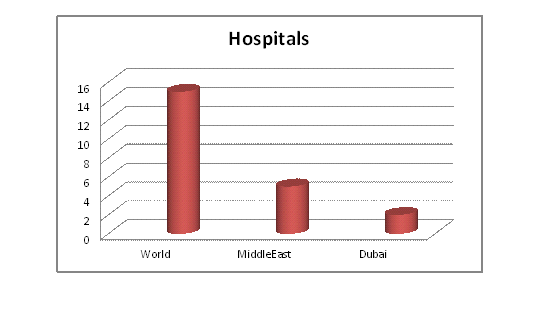
List of Biochemistry Research Centres
By the year 2020, the global market is expected to reach USD of 15.53 Billion with a growth of 8.2% in CAGR according to the new report made by Grand View Research. The global medicine market is expected to reach USD 35.72 Billion by 2020 from USD 12.41 Billion in 2015 at a CAGR of 23.6% from 2015 to 2020.
World Wide:
Biochemistry Research Institute
Primate research Centre of Biomedicine
Kithara Institute for Biochemistry Research
Middle East:
Columbia University Middle East Research Centre
Qatar Biomedical Research Institute
Johns Hopkins Medicine International
Dubai:
Prime Medical Centre
Harvard Medical School Centre for Global Health
Dubai Specialized Medical Centre & Medical Research Labs
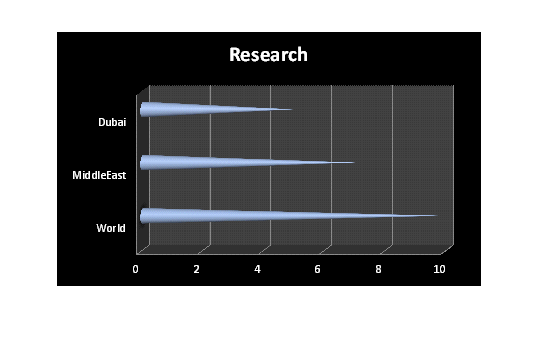
List of Molecular Biology Universities
The global market was valued at an estimated $215.4 million in 2010 and is expected to grow at a CAGR of 15.9% in the next five years. According to the new report of growth was developed and increase.
World-wide:
KU Leuven
University of Oxford
Harper Adams University
University of Groningen
Walden University
Rutgers University
MCPHS University
Florida Gulf Coast University
Bellarmine University
Touro University
Middle East:
King Saud University
King Abdul-Aziz University
Cairo University
Ain Shams University
American University of Beirut
Kuwait University
Alexandria University
Mansoura University
University of Khartoum
University of Carthage
Dubai:
Manipal University Dubai
Biotechnology University College
Accredited University
Zayed University
University of Sharjah
Khalifa University
University of Modern Science
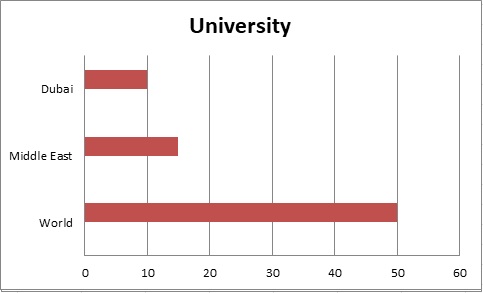
Societies Associated with Biochemistry
The global market reached $12 billion in 2012. This market is expected to grow to nearly $25.8 billion in 2014 and $50.9 billion in 2018, a compound annual growth rate (CAGR) of 20.2%. On the basis of geography, Europe holds the second place in the global market in the field of regenerative medicine & society.
World Wide:
Belgian Society for Microbiology
Belgian Society of Infectious Diseases and Clinical Microbiology
Danish Microbiological Society (Danish Microbiological Society)
American Society for Biochemistry and Molecular Biology
American Society for Microbiology
Society of Nuclear Medicine
Society for Experimental Biology and Medicine
Society for Leukocyte Biology
Middle East:
Society for Molecular Biology & Evolution
Biochemistry Society
UIA Molecular Biology Society
Dubai:
Global Molecular Genetic Society
Society for Industrial Molecular Biology
Society of General Biochemistry
Society for Cell Biology
Biochemistry Society
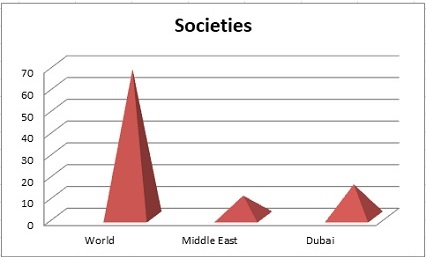
Association of Molecular Biology
By the year 2020, the market is expected to reach of 19.62 Billion with a growth of 10% in CAGR according to the past report the growth was increased in the new report. The market growth is anticipated to be driven by aiming at broadening the utility scope of associated products in various associations.
World Wide:
Association for Molecular Pathology
Association of Biomolecular Resource Facilities
Middle East:
Biology Association
Association for Molecular Pathology
Dubai:
Biology Graduate Students Association
Emirates Medical Association
Khalifa Centre for Genetic Engineering
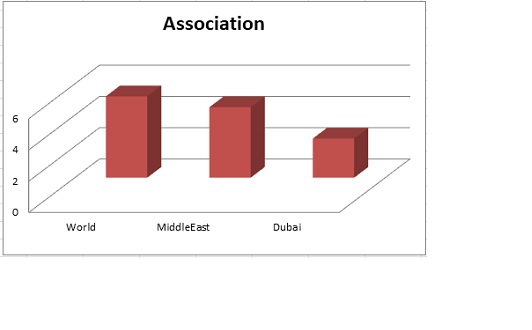
Related Conference: Biochemistry Conference | Medical Chemistry Event | Molecular Biology Congress |
3rd International Conference on Molecular Medicine and Diagnostics April 19-20, 2018 Dubai, UAE
6th Annual Congress on Biology and Medicine of Molecules September 20-21, 2018 Abu Dhabi, UAE
4th World Congress on Human Genetics and Genetic Diseases April 19-20, 2018 Dubai, UAE
18th International Conference on Medicinal and Pharmaceutical Chemistry July 19-21, 2018 Dubai, UAE
World Congress on Bio-organic and Medicinal Chemistry July 19-21, 2018 Dubai, UAE
3rd International Conference on Enzymology and Molecular Biology, March 05-06, 2018 London, UK
World Congress on Human Genetics and Molecular Biology, April 04-05, 2018 London, UK
22st International Conference on Research in Computational Molecular Biology (RECOMB) 2018, Paris, April 21-24, 2018
10th International Conference on Genomics and Molecular Biology Barcelona, Spain May 21-23, 2018
23rd Congress of International Union for Biochemistry and Molecular Biology (IUBMB) September 10-11, 2018
International Conference on Molecular Biology & Biochemistry Dubai, UAE November 26-27, 2018
Annual Genetics Congress Chicago, USA September 17-19, 2018
Annual Epigenetics Congress Chicago, USA August 20-21, 2018
International Conference on Synthetic Biology Paris, France July 16-17, 2018
International Conference on Molecular Biology and Stem Cells Copenhagen, Denmark August 13-15, 2018
Conference Highlights
- Molecular Biology
- Molecular Enzymology
- Molecular Toxicology
- Molecular Pathology
- Molecular Pharmacology
- Molecular Microbiology
- Molecular Drug Designing
- Molecular Cloning
- Molecular Diagnosis
- Pathology and Molecular Medicine
- Microbiology and Molecular Genetics
- Evolutionary Genetics
- Genetic Engineering
- Cell and Gene Therapy
- Cell Biology
- Structural Biology
- Structural Bioinformatics and Proteomics
- Biochemistry
- Metabolomics
- Nuclear Medicine
- Medical Diagnosis
To share your views and research, please click here to register for the Conference.
To Collaborate Scientific Professionals around the World
| Conference Date | August 27-28, 2018 | ||
| Sponsors & Exhibitors |
|
||
| Speaker Opportunity Closed | Day 1 | Day 2 | |
| Poster Opportunity Closed | Click Here to View | ||
Useful Links
Special Issues
All accepted abstracts will be published in respective Our International Journals.
- Molecular Biology: Open Access
- Cellular and Molecular Biology: Open Access
- Biochemistry & Molecular Biology Journal
Abstracts will be provided with Digital Object Identifier by




